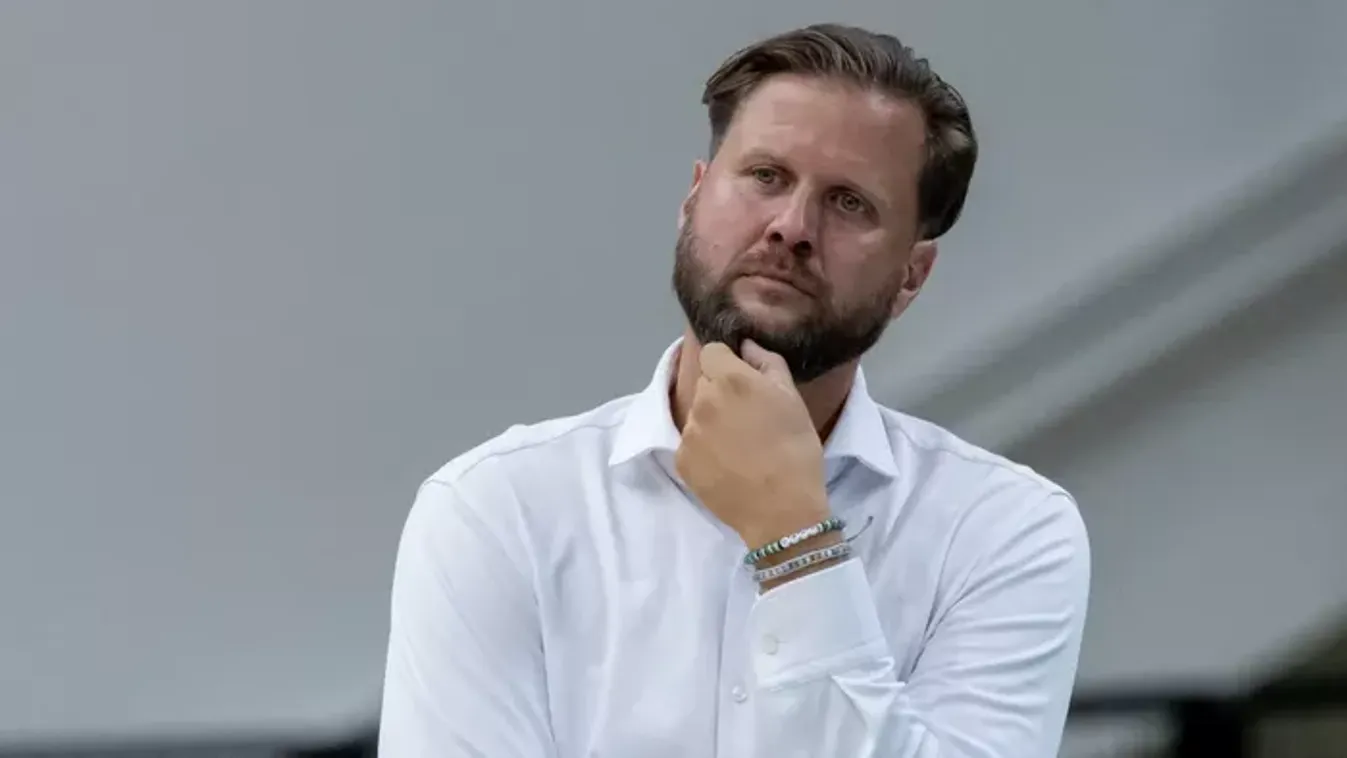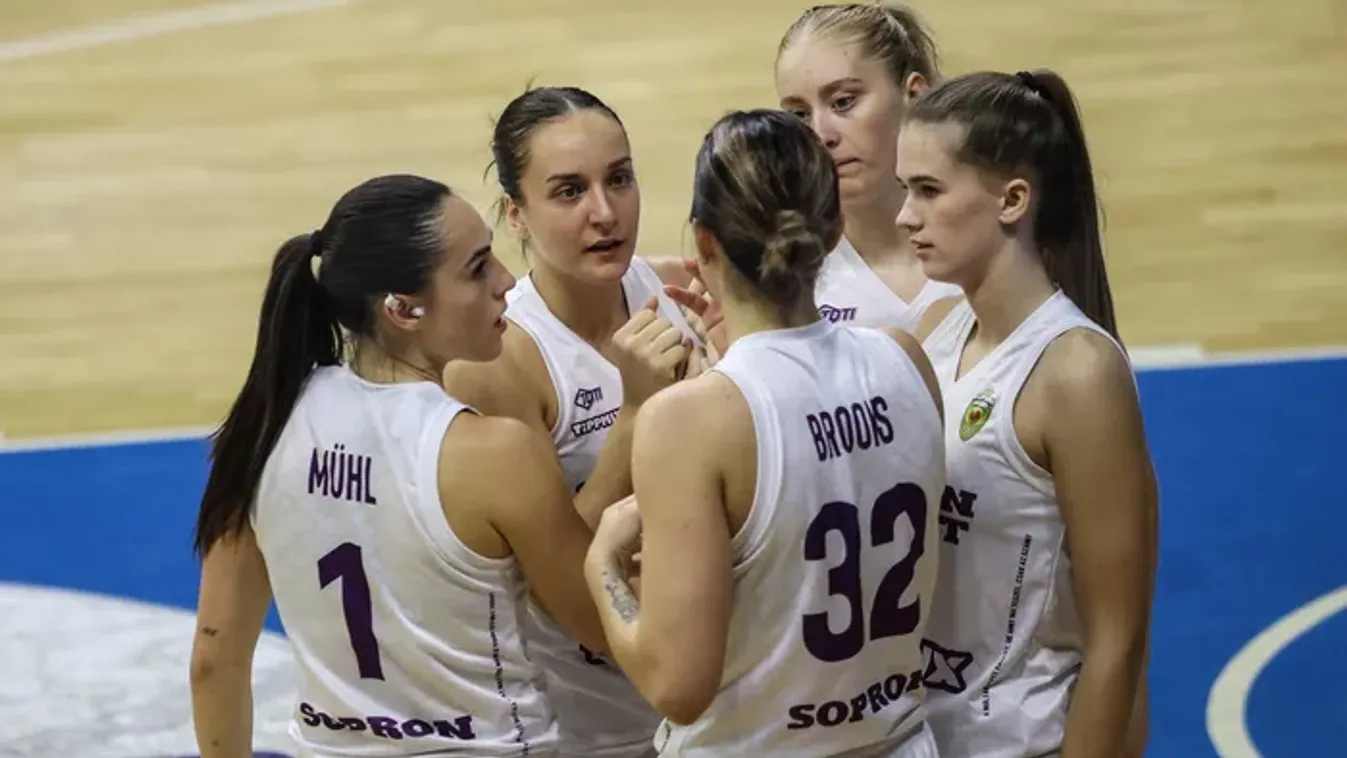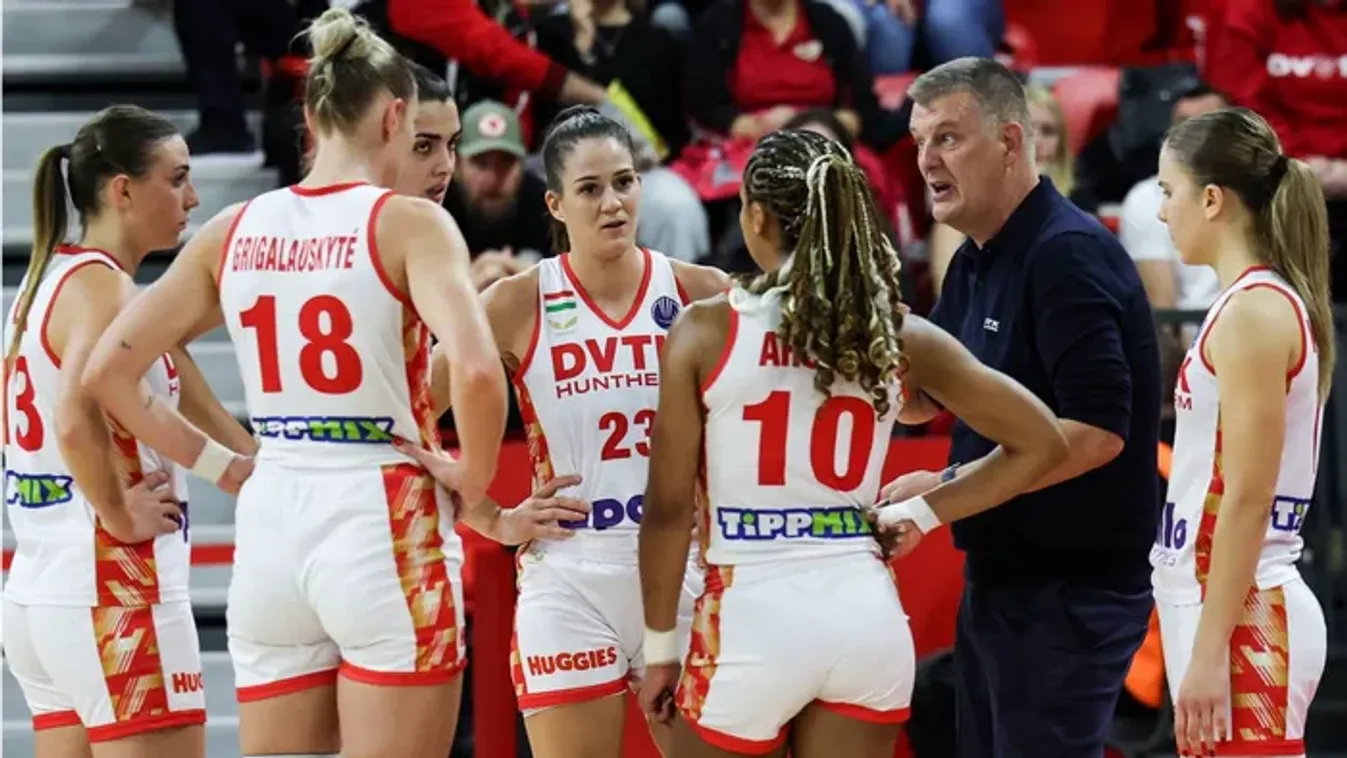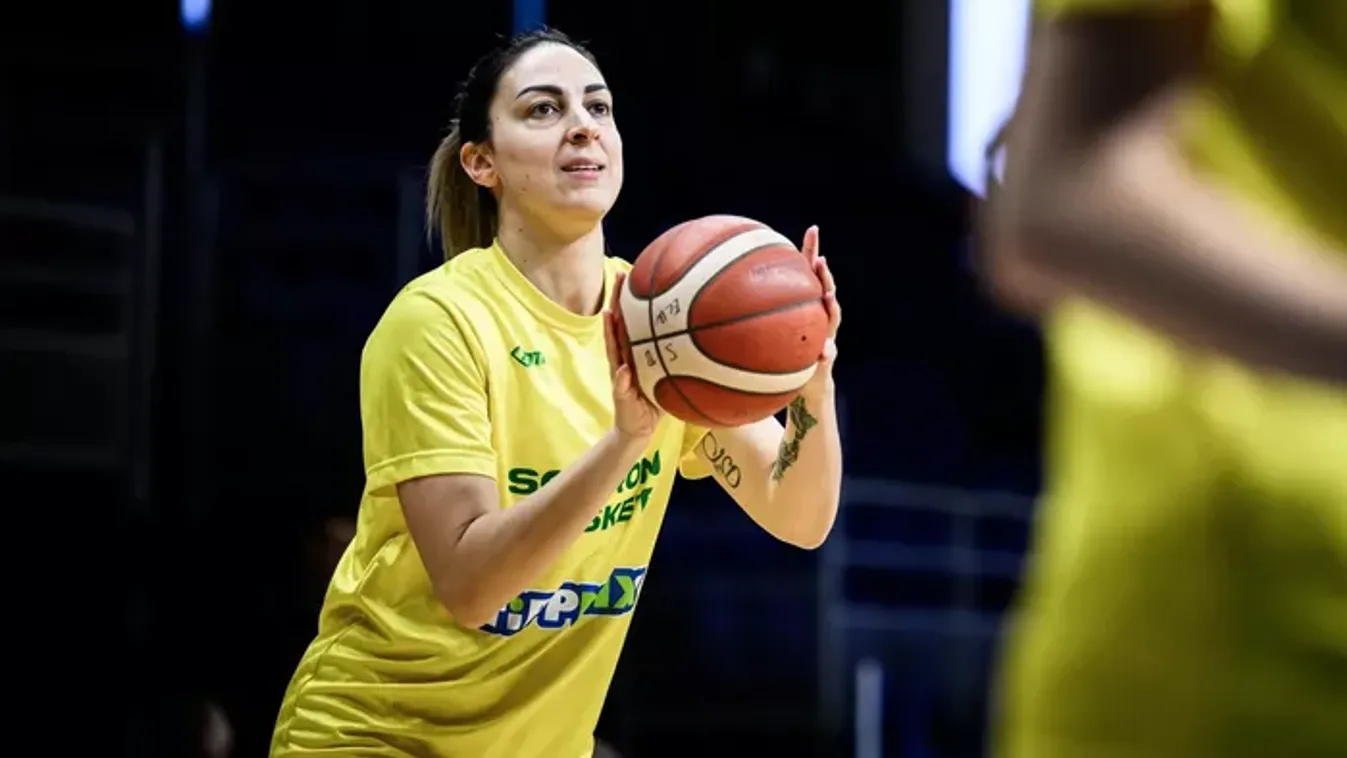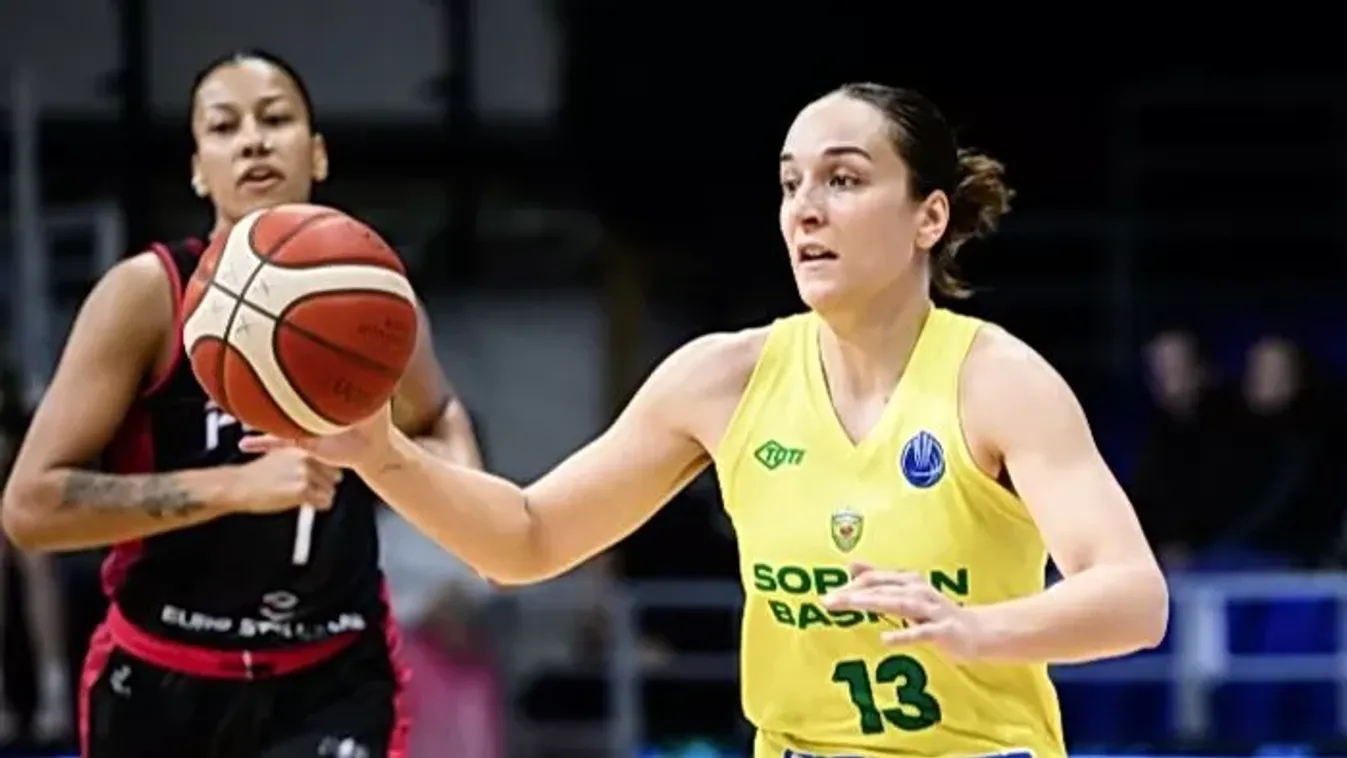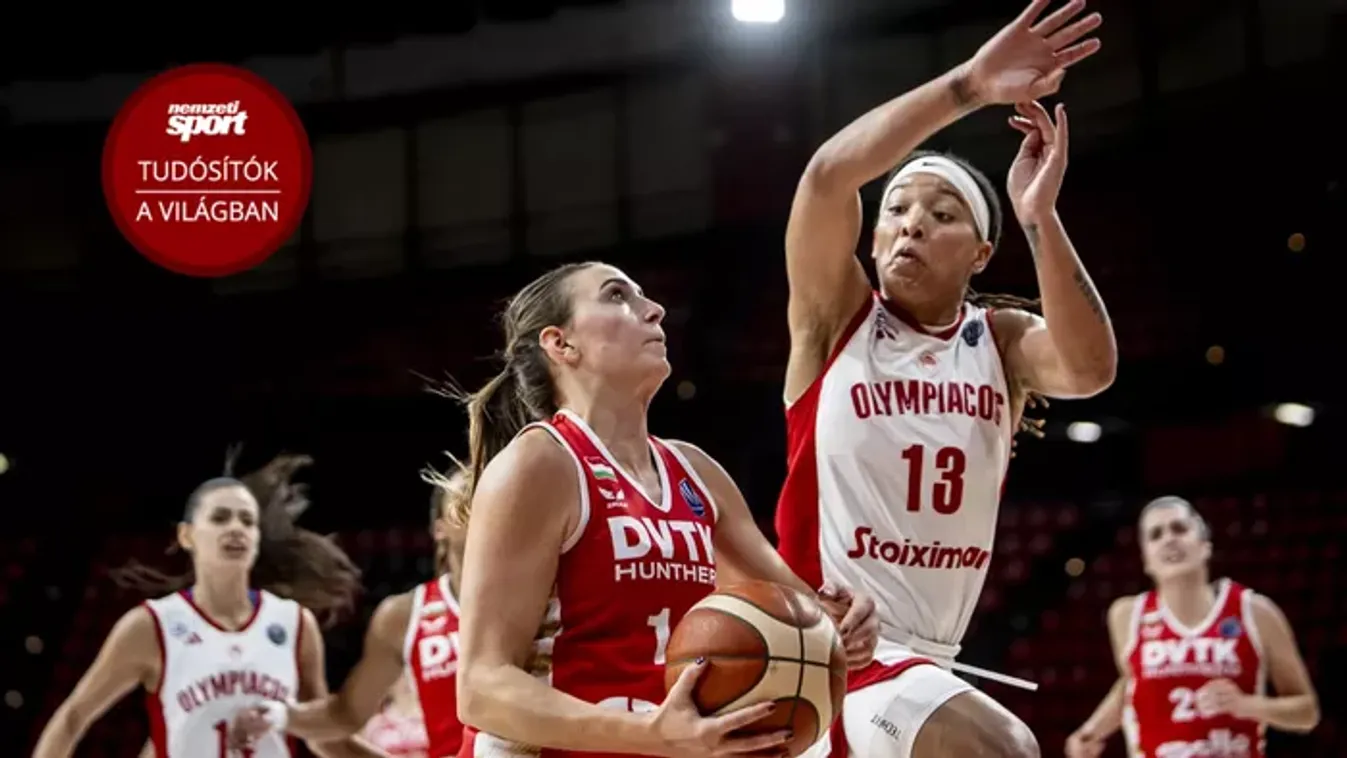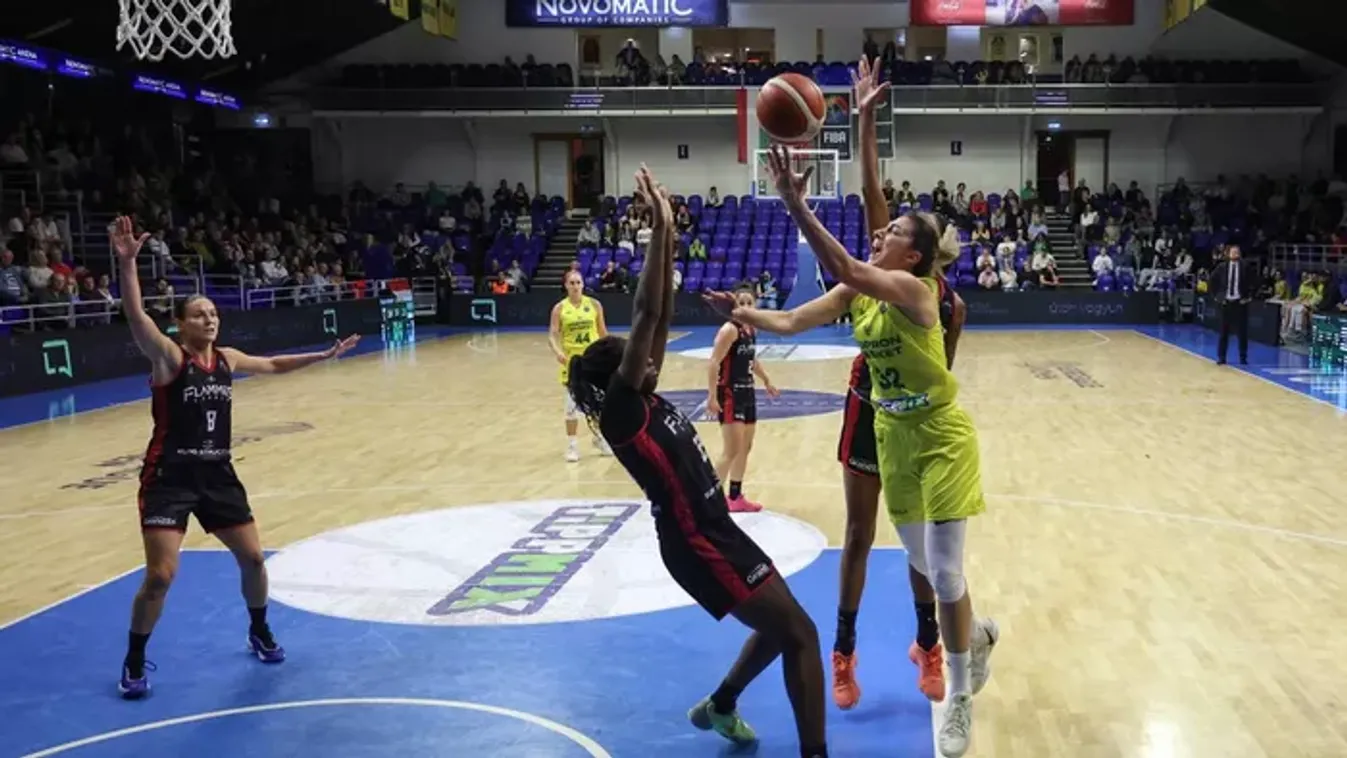Hungarian clubs at the top of Europe: Sopron and its 12 predecessors
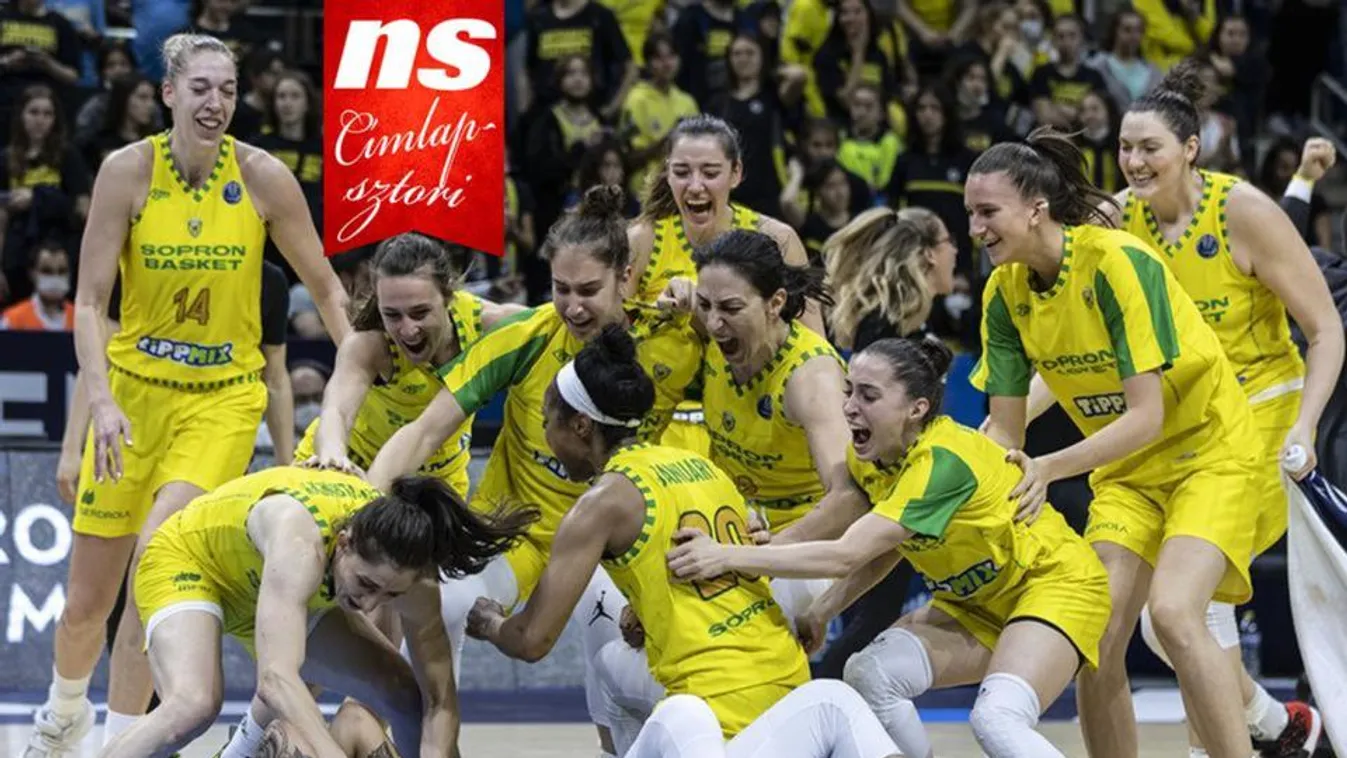
OSC men's water polo team was the first Hungarian team to win the most prestigious international cup series of its sport, the LEN Cup Winners' Cup in December 1972. Since then, twelve more Hungarian clubs have ascended to the throne of the continent. A week ago, on the 50th anniversary of the first success, the Sopron Basket women's basketball team was crowned.
KNOWLEDGE, UNITY, AND DEFEATING TURKEY IN ISTANBUL
The experience is still very fresh, all basketball fans were touched by Sopron Basket's EuroLeague victory last Sunday. The green-and-yellows took part in the fourth final four in a row, reaching the top after a second and then two fourth places. The arrival of Roberto Íñiguez in 2017 leveled up the club that has been a regular EuroLeague participant, that reached the final four in 2009 and won the Ronchetti Cup in 1998. The rather hard-lined coach expected the greatest professionalism in all areas, including the members of his staff, the players, the management and the technical staff in the background. His two seasons were not without conflicts and loud successes – he led the Hungarian league to the top of Europe and has been dominating it for almost a decade.
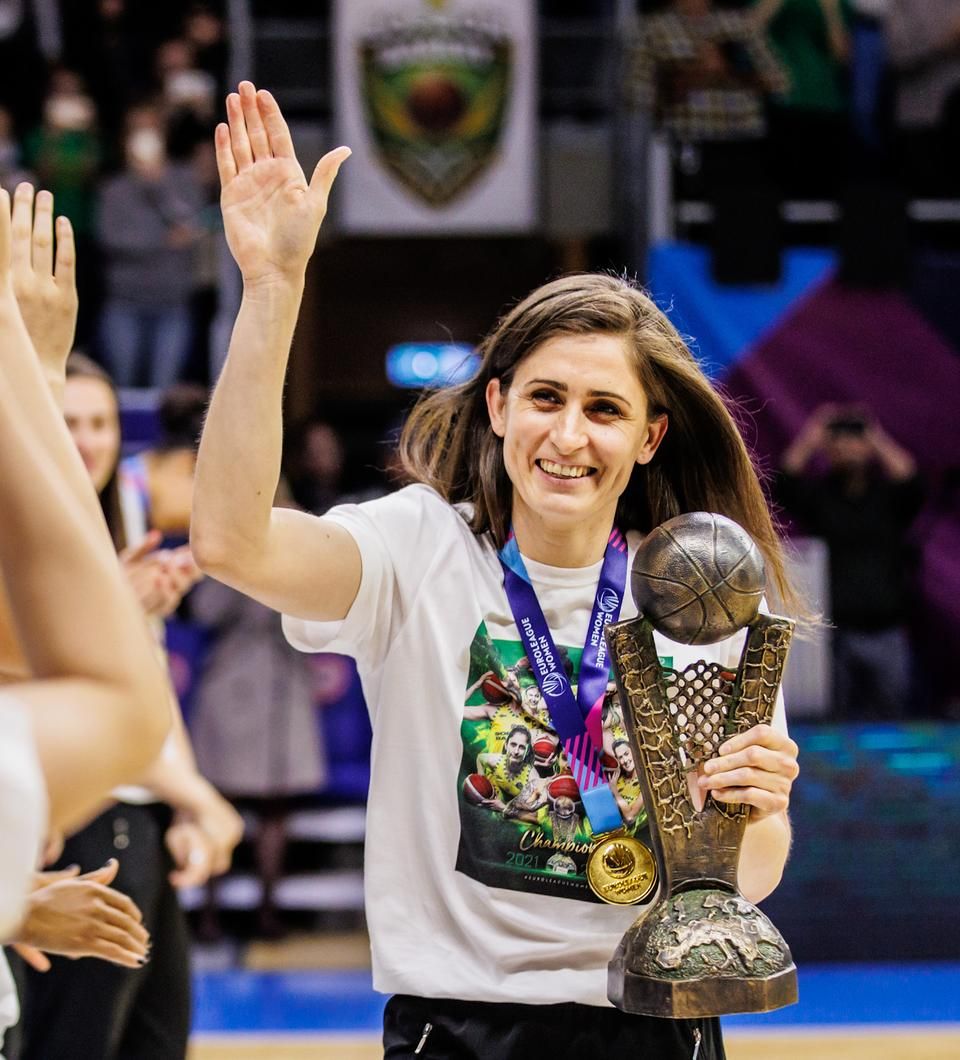
He was a worthy heir, and even surpassed by Dávid Gáspár, whose talent had already been shown at ZTE NKK. In 2019, he led the Egerszeg team to a championship bronze medal, after which Sopron, more precisely manager Zoltán Török, signed him. The manager, born in 1982, continued his activities with his team that won the Hungarian Cup in the canceled 2019-2020 season. In 2021, he continued with a domestic double win and a Euroleague Final Four, while this year, after the unexpectedly lost Hungarian Cup final, he promoted his team to the zenith of the European club scene (Sopron Basket started the league final against Atomerőmű KSC Szekszárd on Saturday).
The best Hungarian team achieved the historic success in Istanbul with an almost perfect performance. In the semifinals, they first defeated Spanish club Perfumerías Avenida Salamanca 74-69 of which Master Íñiguez was sitting on the bench. (Jelena Brooks of Serbia, who was already a member of the 2009 team, made Sopron reach the final of the Final Four in 2018 with her three-pointer (with a total of 27 points) shortly before the final horn went off). Then, with a 12-0 start, Íñiguez defeated Fenerbahçe Safiport, supported by 10,000 fans, 60-55 in the golden match. The hosts' stars may have been paralyzed by the burden. It is possible that head coach Víctor Lapena did not trust his bench enough, and it's a fact that the world's most powerful team, the Russian UGMK Yekaterinburg, was disqualified before the quarterfinals, but no one has to think about it. The almanacs will only say that the winner of the 2021-2022 women's Euroleague is Sopron Basket Hungary. In addition, the most valuable player title was given within the club, to French American Gabby Williams, who deserved the recognition after playing with all her heart.
A thousand fans were waiting at the Novomatic Arena for the delegation that arrived on Monday (team captain Zsófia Fegyverneky with the trophy), and they celebrated together inside the hall. There is no doubt that in the most loyal city, the high-quality professional background and the great players have forged into a cohesive environment. Therefore, whoever chooses Sopron Basket does not buy a pig in a poke.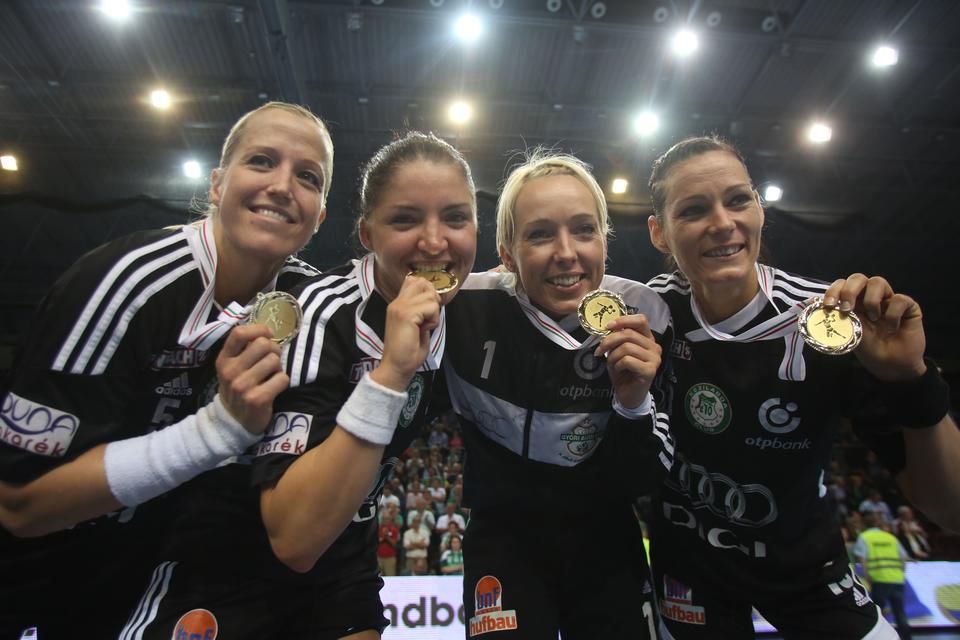
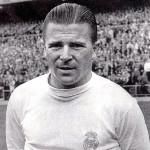
LEGENDS REPRESENTED OUR HANDBALL CLUBS
In handball, only one decade out of the four was when no Hungarian club won the Champions League – the 2000s. In men's, the only first place to date is tied to Budapest Honvéd: the team led by László Kovács and Gyula Füzes, among others, Péter Kovács and József Kenyeres defeated Swiss club St. Gallen 25-16 and 24-18 in the 1982 final. Forty years ago, an all-star team from Budapest reached the top of the women's field. Lajos Mocsai coached Vasas – Éva Angyal, Jánosné Csík, Marianna Gódorné Nagy, Amália Sterbinszky, Györgyi Őriné Győrvári and Mariann Rácz just to name a few – that surpassed the dominant Yugoslavian team, Radnički Beograd, in the final. After the away 24-21 defeat, the Red and Blue team won 29-19 at home: Gódorné and Sterbinszky scored 17 and 11 goals in these two games.
After the 1998 EHF Cup victory, the Dunaújváros team reached the top of the Women's Champions League in 1999. Gyula Zsiga's team, with Beáta Bohus as the team captain, who scored nine times, beat Krim Ljubljana 25-23 at home, then played a 26-26 draw in the Slovenian capital, so Eszter Mátéfi, who scored a total of 13 goals in the two matches, and the team members, could celebrate.
The Győr club also had a breakthrough in the 2010s. ETO won the Champions League in 2013 after losing seven European cup finals (Champions League, Cup Winners' Cup, EHF Cup). In the semifinals against Vâlcea of Romania, Győr won by two goals away from home, who were already four goals behind at half-time of the rematch in Veszprém, but lost only by one. After that, the Hungarian team won the final against Larvik of Norway with a double success.
After the sweet first triumph, the second one came immediately: in the Final Four final held for the first time in Budapest in 2014, there was no better place for the gold than Győr, that beat Podgorica of Montenegro, which won against North Macedonian Vardar in extra time in 2017 and 2018 in the final in Budapest. We will certainly remember forever the unearthly feat of how Éva Kiss saved Andrea Čović's goal opportunity after an intercepted ball in the second overtime of the 2018 golden battle. Just six seconds before the end, Győr had a one-goal advantage, and Kiss' save practically won ETO the trophy. Győr won four golds (2013, 2014, 2017, and 2018) with the Spanish coach Ambros Martín, who returned to the club last May and won one in 2019 under Gábor Danyi.
In addition to the bright victories, it is also worth noting that the domestic clubs also won 15 silver medals in handball. In the men's, Bp. Honvéd finished second in the elite league once (1966) and Veszprém four times (2002, 2015, 2016, 2019). In the ladies' competition, Bp. Spartacus fought in the finals in 1965, FTC in 1971 and 2002. Vasas placed second in 1978, 1979, 1993, and 1994, while Győr collected three Champions League silvers (2009, 2012, and 2016).
WON THE CONTINENT'S CLUB TOURNAMENT NINE TIMES IN WATER POLO
Out of the Hungarian men's water polo teams and the Hungarian clubs overall, OSC was the first one to win the series called European Cup between 1963 and 1996, which then was known as the Champions League between 1997 and 2003, LEN Euroleague between 2004 and 2011, and finally as LEN Champions League since 2012. They won it twice. The first one happened in December 1972 at the National Swimming Stadium on Margaret Island under Mihály Mayer's guidance, while the second clash was in 1978 in Barcelona when the team, strengthened with István Szivós among others, under János Konrád's leadership. With two victories in Budapest (beating Yugoslavian Partizan 5-4 in the key match), OSC, which won silver twice in the intervening period, triumphed in the final four with a flawless performance in the Catalan capital. It is necessary to mention the Konrád family as out of the three brothers, Ferenc was a member of both European Cup-winning teams while Sándor and János won the most prestigious international cup series as a player in 1972 and a coach in 1978, respectively.
After that, Vasas finished in the lead twice, the team hallmarked by the Gábor Csapó, Tamás Faragó, György Kenéz “triumvirate” proved to be the best in the European Cup in 1979 and 1984, when Péter Rusorán managed the team both times. After the second victory, the big three of Vasas broke down because Faragó and Csapó moved to Italy, and Kenéz followed them a year later.
The common point in the next three Hungarian winners is István Kovács. He first won the European Cup in 1994 with the big team of the 1990s, the Újpesti TE that was built on Tibor Benedek, Tamás Dala, and Balázs Vincze after playing a 10-6 success at home and an 11-11 draw with Catalunya in Barcelona. Then silver medals followed: Kovács finished second twice with Újpest and twice with Honvéd, while in 2004 – in the absence of the Italian clubs – he also won with the new big team of the era in what was then called the Euroleague. Tamás Molnár's team defeated Primorje Rijeka first and then Prince Novi Jadran 7-6 in the Final Four on Margaret Island (the team won another silver the following year). Kovács had “something” to do with Szolnok's success as well in 2017, as he was (and still is) the professional director of the team. Sándor Cseh's team beat defending champion Jug Dubrovnik 10-5 from a 1-3 disadvantage in the Duna Aréna after winning over Eger 7-5 in the semifinals.
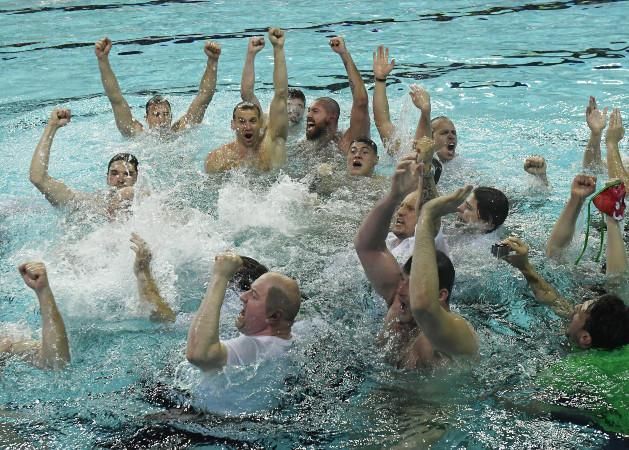
The most recent success belongs to Ferencváros. Zsolt Varga's team beat defending champion Olympiacos 4-3 with penalties in Hanover in 2019 after a 10-10 draw in regular time. By this time, a final of eight had already been held, and the Green and Whites' path led to the summit through Jug Dubrovnik and Barceloneta. With its victory, FTC became the second team after Pro Recco to win a gold medal all the way from the qualifiers. Four of them doubled as Tamás Mezei, Dénes Varga, Márton Vámos and Aaron Younger also played their part in the victory in Szolnok. The Green and Whites won silver in the following completed season (this was the tenth Hungarian silver overall), and they are close to being in the Final Eight in Belgrade in the current season.
The Hungarian team reached the top of the women's Euroleague once. Szentes, led by Gyula Tóth, won the series in 1993, which was then called European Cup. The team, founded only ten years ago, defeated Catania 6-5 in front of 2000 spectators in the home pool, and Mercédesz Stieber scored half of Szentes' goals.
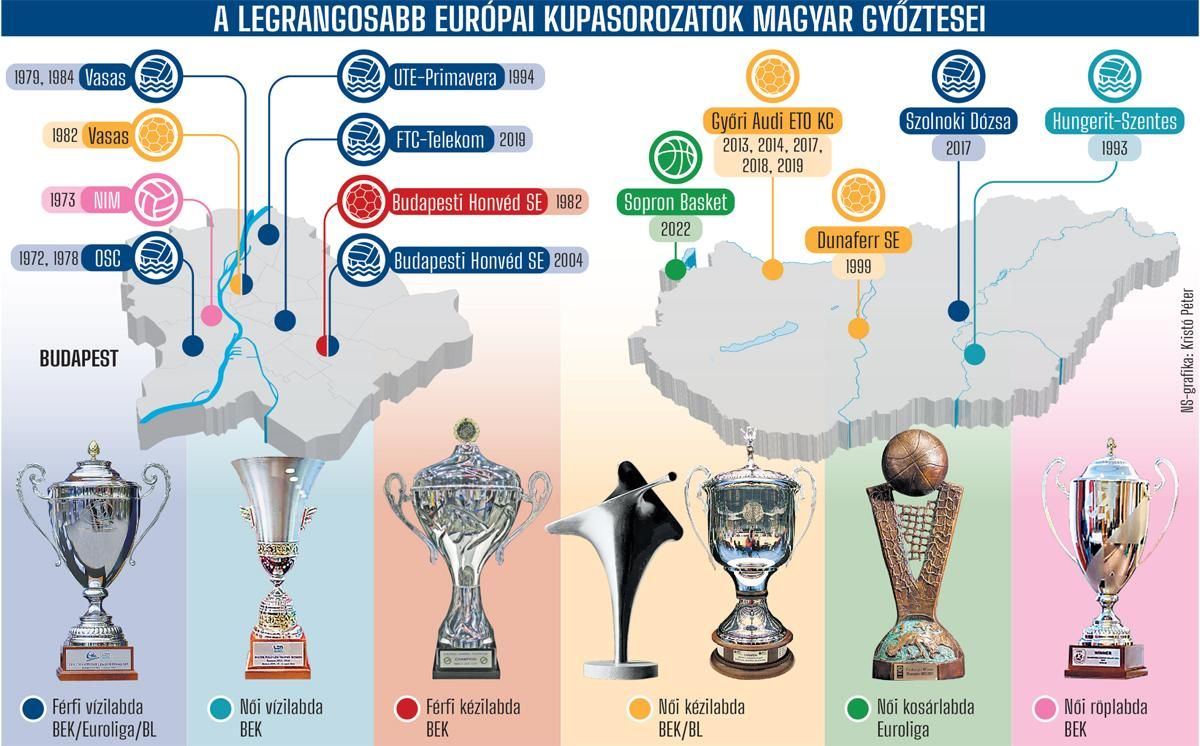
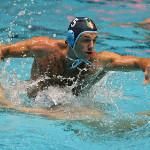
AFTER THE COACH LEFT, NIM FOUGHT BACK
After an extraordinary – and even incomprehensible – history, the Volleyball Champions Cup victory in Hungarian volleyball was born only in 1973 so far.
NIM SE, founded in 1962 and barely had ten years of history, debuted in NB I in 1965 and ascended to the women's league throne in 1969. They were preparing for the Final Four in Apeldoorn, and on the first day on March 9, 1973, Dynamo Moscow, who had won the previous four competitions, piqued on them. Head coach Endre Kovács gave an interview in the March 6 issue of Népsport, but on the 9th, at the end of the article trailer, it was written that he did not accompany his team... Not more, not less. It was only after the tournament that it turned out the coach who had been "nursing" a tense relationship with the department management for some time, left when the “vehement dissatisfactions” began in one of the last training sessions. (Éva Szalayné Sebők recalled in 2003 that they did not train properly, but it was not a big deal). As a result, he stated he would not travel to the Final Four, and after no one could persuade him to change his mind (and by mutual agreement, his contract was then terminated), his young assistant, Gábor Héra managed the team in the Dutch city.
But how?! NIM opened with 7-0 against the dreaded Moscow team, then they mopped the floor with them to win 15-4 in the first set. The opponent hit in the head only began to recover in the third set, but could not catch up.
The feat against the favorite boosted the Hungarian champions and defeated Dynamo Berlin 3-0 and the Polish Start Łódź 3-1. The team won the trophy by playing extremely disciplined volleyball with a sophisticated technique. We could say it all happened on “home grounds” because three months earlier the team had played in the international tournament in the hall of Apeldoorn.
"The 7-0, which is naturally also due to luck factors, shocked the opponent's professional staff and the players alike. It is a characteristic of their stiffness that they did not take their time, and also that they actually forgot to substitute players at all," Gábor Héra recalled the key match a month and a half after the great victory. Interestingly, after the announcement of the results and the festive reception, the Dutch hosts went to where the Hungarians were accommodated late at night to congratulate them separately!
As Hungarian volleyball players, they are still the only ones who have experienced the triumphant three days: Lucia Bánhegyiné Radó, Ilona Buzekné Makláry, Emőke Énekes, Judit Gerhardtné Kiss, Katalin Steinerné Papp, Éva Szalayné Sebők (members of the starting six), as well as Gabriella Beck, Beatrix Farkas, Katalin Marczis Halászné, and Katalin Wéber.
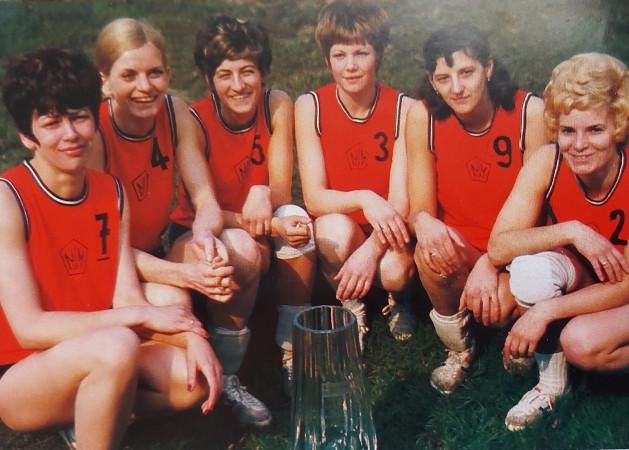
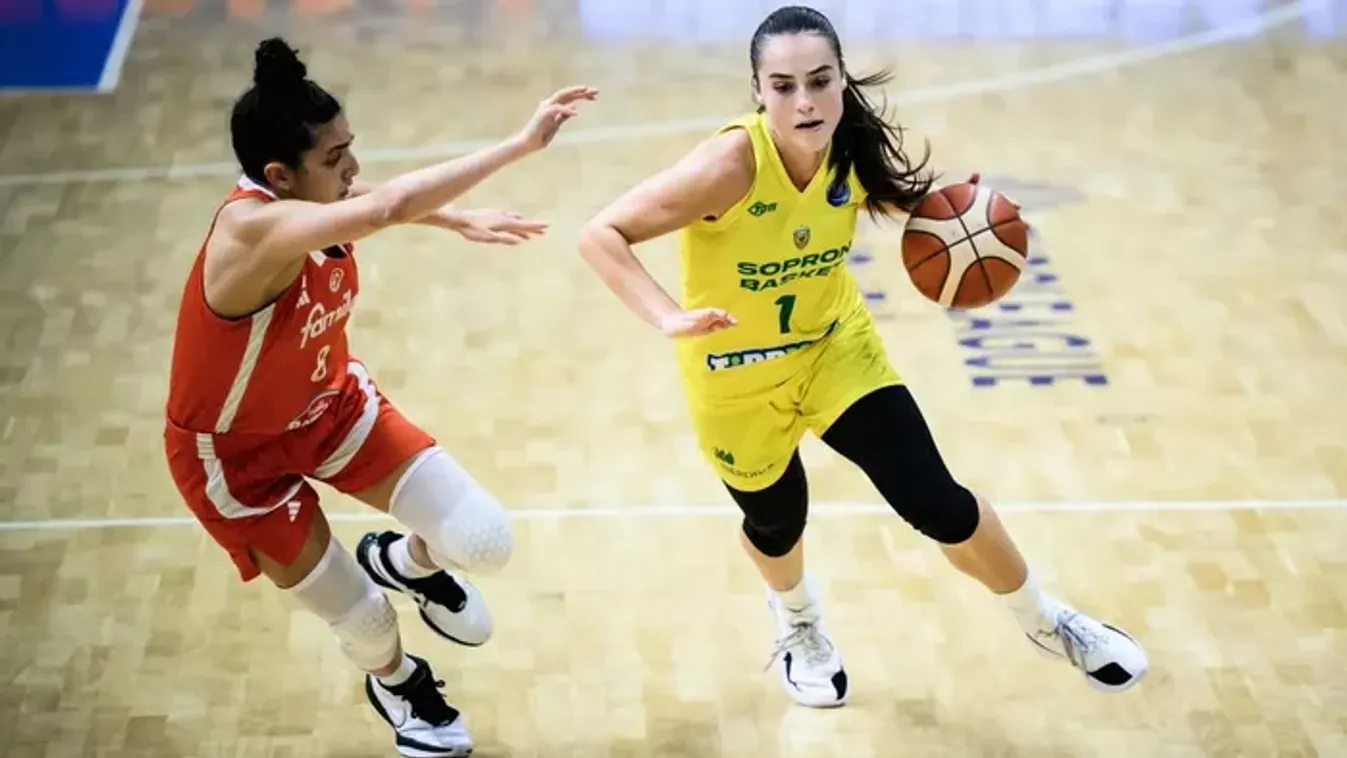
Az Európa-kupában folytatja a Sopron Basket
